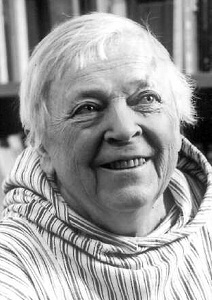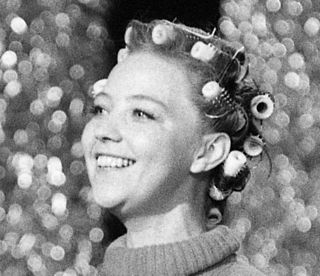
Inger Hagerup was a Norwegian writer, playwright and poet. She is considered one of the greatest Norwegian poets of the 20th century.

Jon Almaas is a Norwegian TV-host and actor, best known from the weekly comedy Nytt på nytt which he hosted for 17 years.

Christian Tybring-Gjedde is a Norwegian politician who represented the Progress Party until 2024. He has been a member of the Norwegian parliament since 2005, and was the leader of the Progress Party's Oslo chapter from 2010 to 2014.
Kadra Yosuf, also known as Kadra Noor or Kadra Norwegian, is a Norwegian-Somali activist.
Peder Are Nøstvold Jensen is a Norwegian far-right counter-jihad blogger who writes under the pseudonym Fjordman. Jensen wrote anonymously as Fjordman starting in 2005, until he disclosed his identity in 2011. He has been active in the counter-jihad movement, which argues that multiculturalism, particularly Muslim mass immigration, poses an existential threat to Western civilization. He has promoted this belief in a self-published book titled Defeating Eurabia, and stated that "Islam, and all those who practice it, must be totally and physically removed from the entire Western world".

Grethe Kausland was a Norwegian singer, performer and actress. As a child star she was one of Norway's most popular singers, and she participated in several films as a child. She represented Norway in the 1972 Eurovision Song Contest, singing "Småting" with Benny Borg. From 1973 she performed regularly with the entertaining group Dizzie Tunes. Awarded "Spellemannprisen" 1978 for the album A Taste of Grethe Kausland, and "Leonardstatuetten" 1991 for her achievements on the revue scene.

Mohammad Usman Rana is a Norwegian commentator, columnist and medical doctor, having earned his degree at the University of Oslo.
Pernille Holmboe is a Norwegian model widely known as the face of the Swedish clothing company Gina Tricot, with whom she had a long-running contract, that was terminated in 2010. She is especially known for this among Norwegians, to whom she has become "synonymous" with the brand.

Hanne Stine Nabintu Herland is a Norwegian author, who hosts a website and Youtube channel both named the Herland Report. She has a master's degree in history of religions from the University of Oslo.
Document.no is a Norwegian far-right anti-immigration online newspaper. Academics have identified Document.no as an anti-Muslim website permeated by the Eurabia conspiracy theory. The website received global media attention in connection with the 2011 Norway attacks due to its association with perpetrator Anders Behring Breivik, a former comment section poster on the website.

Human Rights Service (HRS) is a Norwegian foundation established in 2001. The organization is known for its criticism of Islam and immigration, and is managed by Rita Karlsen and Hege Storhaug.
Hallgrim Berg is a Norwegian author, traditional folk musician, and former politician for the Conservative Party. He was a member of the Norwegian Parliament from 1982 to 1997, representing Buskerud. He has released several books and been involved in several musical albums, and held numerous public positions.
Rikets tilstand is a Norwegian investigative documentary series that aired on TV 2 from 1999 to 2002. The host was Gerhard Helskog, former host of Dokument 2. The series premiered on 30 September 1999.
Linda Johansen is a Norwegian businesswoman, former glamour model, and former editor of the softcore pornographic magazine Lek.

Emilie Enger Mehl is a Norwegian politician for the Centre Party. She has served as minister of justice since 2021 and member of parliament for Hedmark since 2017.
Lea Mathilde Skar-Myren is a Norwegian actress and fashion model.
Marta Breen is a Norwegian non-fiction writer, journalist, and organizational leader. Her books often center on women's history and feminism.
Norske jenter omskjæres is a Norwegian television documentary that was aired in two parts as part of the Rikets tilstand investigative series on TV 2 on 27 September and 4 October 2000, which exposed the support by Norwegian imams of female genital mutilation (FGM).
Tonje Steinsland is a Norwegian journalist. She has worked as a television journalist since 1991, notably as an investigative reporter and host of documentary series Brennpunkt, Rikets tilstand and Dokument 2. She has later been the host of the TV 2 talk shows Tonje Steinsland møter... and Vårt lille land.
Helle Merete Brix is a Danish author, journalist and literary critic. She has been noted as a critic of Islam since the late 1990s, and was formerly associated with the Danish Free Press Society as editor of its online magazine Sappho until 2010, and was later a part of the Lars Vilks Committee.









